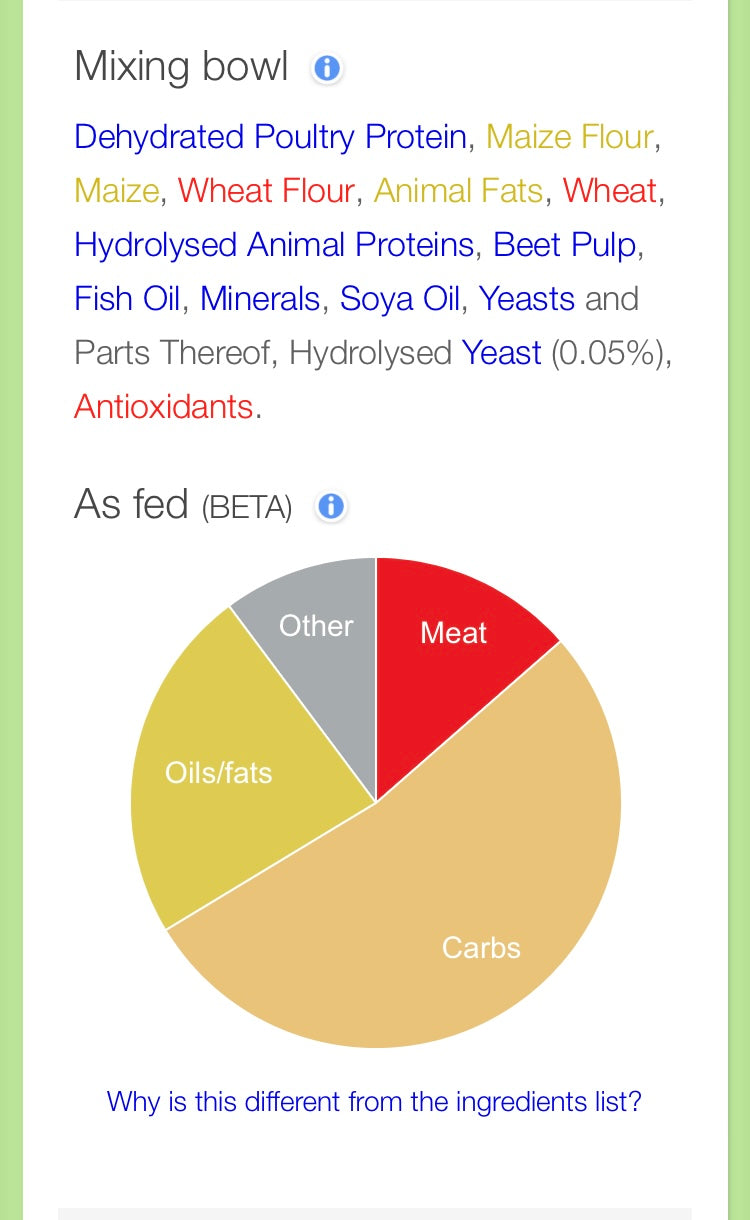
Introduction to obesity, diabetes & pancreatitis.
Share
Diabetes, Pancreatitis and Insulin Resistance In Your Dog.
The premise is rather simple when it comes to sugar in your dog's diet:
The pancreas is your dog's organ in charge of regulating sugar levels by making enzymes that break them down. Insulin is the hormone that helps the body use the glucose for energy.
Carbohydrates convert into sugar (glucose). But when you overload your pet's diet with carbohydrates (wheat, barley, rice, brown rice, potato, maize, yeast, peas...). You are indeed making the problem worse.
Dogs are optimised to eat meat. Whilst humans can break down carbs by converting them into glucose we can use as energy, dogs are indeed optimised to transform proteins & fats into energy they can use.
Dogs secrete very limited amounts of amylase in the pancreas, which is the enzyme in charge of breaking down starches. Feeding them a lot of carbs is bound to create problems.
Pancreatitis occurs when the pancreas gets inflamed, causing sharp pains to the area.
Whether it's chronic or acute, pancreatitis is a serious problem. Symptoms include vomiting, diahrrea, weight loss, dehydration and abdominal pain after feeding.
The causes range from genetics, a high (but low quality) fat diet, and HIGH AMOUNTS OF CARBS, which are abundant in commercial dog food.
Commercial dog foods -pictures attached- are crippled with cheap and nasty fillers that will only inflame your dog's pancreas, this is known as Hyperlipidaemia, or excess fat in the blood.
All of this caused by high amounts of carbs, vegetable oils and maize, corn, wheat and other ingredients your dog simply cannot safely break down.
Excess carbohydrates transform into sugar, excess sugar gets stored as fat. This is what happens to us humans. If we consume too many carbohydrates (pasta, corn, refined sugars), we put weight on. Overtime, this leads to obesity and most common diseases in the developed world.
Pancreatitis is more prone in overweight dogs, inactive dogs and well...some breeds are more prone than other. But you should firstly address the dog's diet, before blindly following advice that's convenient to ongoing treatments of meds.
If acute, you're going to probably stop feeding your dog for a couple days until the swelling has subsided. A common solution is to introduce a low-fat diet (but only in the very short term).
We are big believers in not compromising food quality and great ingredients for a low-fat food. As the condition betters, the dog is going to need a healthy amount of fat in order to metabolise energy efficiently.
So why then, are vets recommending our customers foods that are completely inadequate? Please see images attached.
Exactly, we don't know either. Pancreatitis, if caused by inadequate foods, needs to be remedied with good food, proper food, and not by consuming food that will make the problem worse.
Whether it's your vet, or anyone, they need to keep the dog's health in mind by providing good nutritional advice.
Have a question? Message us or pop in one of our stores for a friendly chat.
#yarm #linthorpe #visityarm #dognutrition #dogsofteesside #thepetquarter #dogfood #teesside #independentteesside #shoplocal